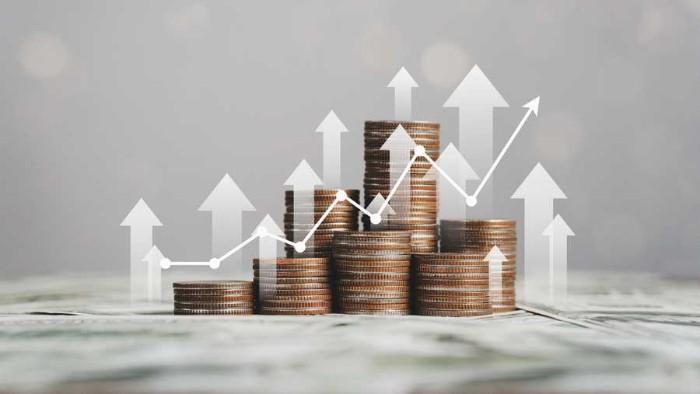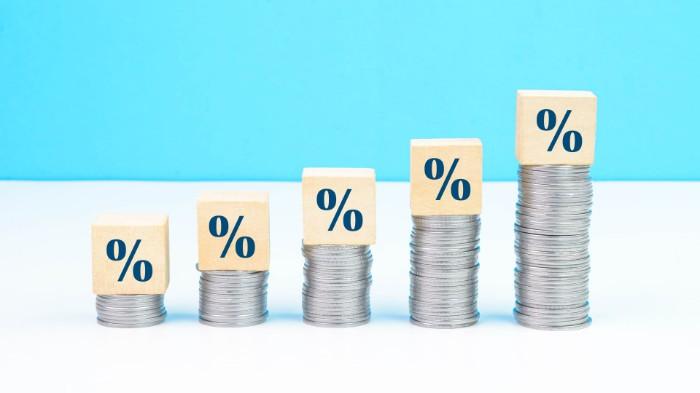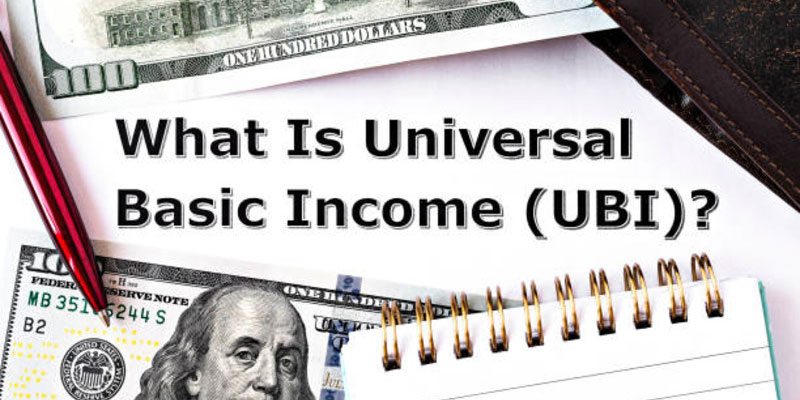Are you looking for ways to manage your finances and grow your savings? Interest rates on saving accounts can offer a great opportunity to generate some extra income, but do you understand the ins and outs of how interest works on savings accounts?
In this blog post, we'll provide an informative guide outlining everything from calculating effective annual returns to understanding compounding numbers so that you feel confident in managing your funds. Read on for an overview of all things related to interest rates regarding savings!
What Is Interest, and How Does It Work on Savings Accounts

Interest is the amount you earn when saving funds in an account, usually expressed as a percentage. It's calculated on the principal or initial amount deposited into the account. How much interest you can receive will depend on your savings account provider and the type of account you have.
When understanding how interest works on savings accounts, there are two main concepts: effective annual return (EAR) and compounding numbers.
The effective annual return
The effective annual return is the APR (annual percentage rate) multiplied by the number of times per year that interest compounds in your account. This calculation gives you a more accurate picture of what you earn each year instead of just looking at the APR rate alone.
Compounding numbers
Compounding numbers refer to the frequency interest is added to your savings account. The more often this occurs, the more money you will earn over time as compound interest will begin to add up.
For example, if you have an account that pays 0.5% of interest daily and compounds monthly on the same principal balance monthly, you would earn 6% per year (0.005 x 365 = 1.825).
Factors that Affect the Amount of Interest Earned on a Savings Account
When considering opening a savings account, it’s important to understand the factors that will affect how much interest you can earn. The interest rate you receive on your savings account depends on several variables, such as your initial deposit amount and the frequency at which interest is calculated and applied.
Number of compounding periods
One major factor that affects your effective annual return, or earnings from the compound interest, is the number of compounding periods. This refers to how often the bank adds accrued interest to the principal balance to calculate new interest payments.
For example, monthly compounding means that each month’s accrued interest will be added to the total balance and used to calculate new payments for the following month. Choosing an account with more frequent compounding can significantly increase the amount of interest earned in a shorter period.
Type of deposit you make
Another factor that affects the amount of interest you can earn on your savings is the type of deposit you make. An initial lump sum deposit will typically garner a higher rate than multiple smaller deposits made over time, allowing for greater investment opportunities for the bank.
Many banks offer different rates for different types of accounts; some may be higher-yielding and require a larger minimum balance or longer-term commitment, while others may allow for more flexibility, such as no minimum balance requirements.
Before committing to an account, research each institution's rates and select one that best fits your financial goals.
Country's economic climate
Interest rates can vary depending on the country's economic climate. Generally, when there is an increase in inflation, banks may offer higher interest rates to attract customers and help mitigate the value of money lost over time.
Alternatively, during an economic boom or stability, banks may reduce their rates to generate more savings for themselves. Thus, it’s important to take notice of any changes in the rate environment and ensure that your financial institution offers competitive returns before committing to a particular account.
Understanding how each factor affects how much interest you can earn on your savings account, you’ll be well-equipped to decide where to maximise your return.
Benefits of Saving with a High-Interest Account

Savings accounts that offer high-interest rates can be an excellent option for those looking to make the most of their money. Not only do they provide a great opportunity to generate extra income, but they also have other benefits.
One of the main advantages of saving with a high-interest account is the potential for higher returns over time. This means your funds will grow faster than they would if you put them in a regular savings account with lower interest rates. Access to higher interest rates allows you to maximise your earnings on larger amounts of money.
Another advantage of saving with a high-interest account is that you may benefit from compounding returns. Compounding returns means your interest on your savings account will be reinvested, earning you even more interest over time. This can help you grow your money faster and build substantial wealth in the long run.
Finally, high-interest accounts often have greater safety and security measures than others. They typically require higher minimum deposits, which helps ensure your funds are safe from potential threats or risks.
These accounts may offer additional insurance policies or protections that can give you peace of mind when protecting your money.
Tips for Maximizing Your Savings with a High-Interest Account
- An important way to maximise your savings is by selecting a high-interest account. You can choose the best return for your money by carefully researching the different interest rates.
- It's also beneficial to consider additional factors such as fees and minimum balance requirements when selecting.
- Committing to saving regularly through automatic deposits will help you take full advantage of the higher interest rate.
- Remember to be mindful of how often compounding occurs on a high-interest account, as this could make all the difference in achieving optimal returns over time.
With these tips, you'll surely gain maximum benefit from a high-interest savings account!
FAQs
How often is interest paid on savings accounts?
Most banks pay interest on savings accounts either monthly, quarterly or annually. How often you receive interest payments depends on your account type and the bank's policies.
Are there any risks associated with having a savings account?
Savings accounts are considered relatively safe investments since they’re FDIC insured. However, some risk is still associated with keeping money in a savings account. The value of your money could be impacted by inflation, and the interest rate on your savings account may not keep pace with inflation.
You could lose your savings if you don't keep track of your account or if you exceed the bank's withdrawal limits.
What should I do to withdraw money from my savings account?
Before withdrawing money from your savings account, understand your specific account's terms and conditions. Some banks may impose a penalty fee if you withdraw funds too often or quickly.
Consider other options, like transferring money to another account before taking out cash from your savings account. This can help protect the interest earned on your savings and avoid any potential fees.
Conclusion
Interest and savings accounts are beneficial for your financial well-being. Interest helps you earn money on the cash you put in the account without taking any further action from yourself. With the help of a high-interest savings account, you can maximise your earnings with minimal effort.



